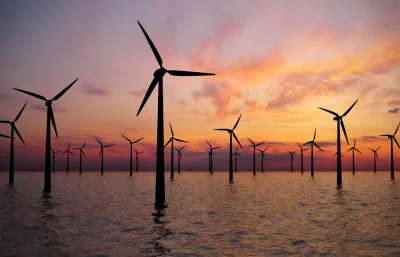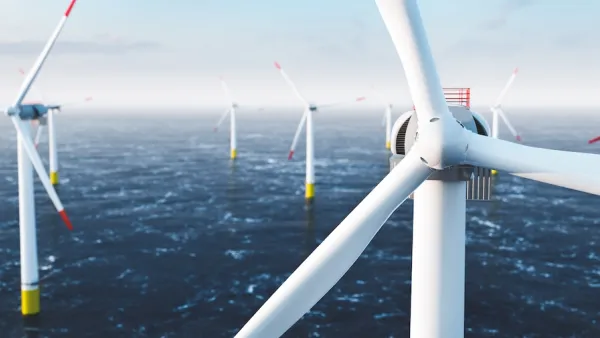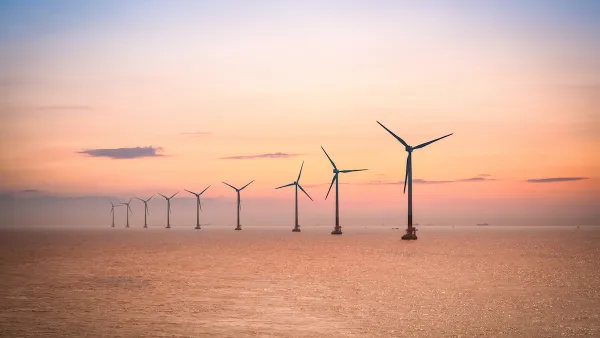States traditionally resistant to renewable energy are passing legislation to ease the way for offshore wind production as lawmakers realize the potential economic benefits to their states.

“The offshore wind industry, which produces little electricity today, is poised to grow exponentially in the coming years as long-awaited projects come online, and more waters are opened for leasing,” writes Alex Brown in Governing. While some states mandate certain amounts of offshore wind energy, Schulman writes, others have been reluctant to do so. Now, with the economic benefits of offshore wind becoming more apparent, some state legislators are hoping their states can cash in.
On the East Coast, “Eight states set goals or mandates that total 39 gigawatts of capacity by 2040. Many have invested in ports, workforce development, transmission infrastructure and manufacturing sectors.”
The article outlines recently passed or proposed laws that support offshore wind production, such as a Massachusetts bill that would establish an investment fund and a Maryland law that streamlines the process for renewable energy credits. On the West Coast, “Federal officials are expected to hold the first offshore wind lease sale in California waters this fall, and state regulators there have twice voted to allow the lease phase of projects to move forward.”
Even in the South, where energy interests have largely suppressed the development of renewable energy infrastructure, lawmakers hope to reverse that trend. “Louisiana legislators, for example, passed a law this year to allow for leasing of state waters in the Gulf of Mexico for offshore wind projects.”
FULL STORY: More States Back Offshore Wind, Citing Economic Potential

National Parks Layoffs Will Cause Communities to Lose Billions
Thousands of essential park workers were laid off this week, just before the busy spring break season.

Retro-silient?: America’s First “Eco-burb,” The Woodlands Turns 50
A master-planned community north of Houston offers lessons on green infrastructure and resilient design, but falls short of its founder’s lofty affordability and walkability goals.

Delivering for America Plan Will Downgrade Mail Service in at Least 49.5 Percent of Zip Codes
Republican and Democrat lawmakers criticize the plan for its disproportionate negative impact on rural communities.

Test News Post 1
This is a summary

Test News Headline 46
Test for the image on the front page.

Balancing Bombs and Butterflies: How the National Guard Protects a Rare Species
The National Guard at Fort Indiantown Gap uses GIS technology and land management strategies to balance military training with conservation efforts, ensuring the survival of the rare eastern regal fritillary butterfly.
Urban Design for Planners 1: Software Tools
This six-course series explores essential urban design concepts using open source software and equips planners with the tools they need to participate fully in the urban design process.
Planning for Universal Design
Learn the tools for implementing Universal Design in planning regulations.
EMC Planning Group, Inc.
Planetizen
Planetizen
Mpact (formerly Rail~Volution)
Great Falls Development Authority, Inc.
HUDs Office of Policy Development and Research
NYU Wagner Graduate School of Public Service





























